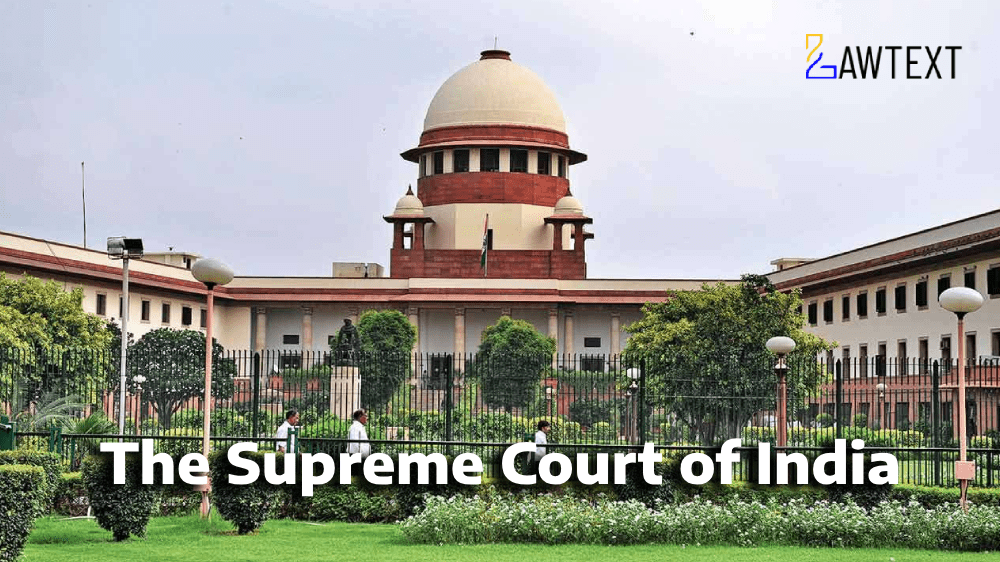

Procedural Safeguards under TADA Act: The Court emphasized that confessions recorded under Section 15 of the TADA Act must strictly comply with the procedural safeguards under Rule 15 of the TADA Rules and the guidelines laid down in Kartar Singh. Any deviation renders the confessions inadmissible.
Voluntariness and Free Atmosphere: Confessions must be recorded in a free atmosphere, and the accused must be given adequate time for reflection. Recording confessions in heavily guarded environments like BSF camps or Joint Interrogation Centres (JIC) vitiates the voluntariness of the confessions.
Issue Estoppel: The doctrine of issue estoppel prevents the re-litigation of issues already decided in a prior case. The confessional statement of Mohd. Salim Zargar, which had been rejected in a prior case, could not be relied upon in the present case.
Draconian Nature of TADA Act: The Court noted the harsh nature of the TADA Act and stressed that its provisions must be construed strictly, especially when dealing with confessions recorded by police officers.
The Supreme Court dismissed the appeals, upholding the acquittal of the respondents. The Court held that the confessional statements were inadmissible due to procedural lapses, including the failure to ensure voluntariness, provide time for reflection, and follow the guidelines laid down in Kartar Singh. The doctrine of issue estoppel also applied to Mohd. Salim Zargar’s confession, which had been rejected in a prior case.
Major Acts:
Terrorist and Disruptive Activities (Prevention) Act, 1987 (TADA Act) – Sections 3, 4, 15 – Confessional statements made to police officers not below the rank of Superintendent of Police (SP) admissible under Section 15, subject to procedural safeguards.
Ranbir Penal Code, 1932 (RPC) – Sections 118, 302, 365, 368 – Offences related to kidnapping, murder, and conspiracy.
Code of Criminal Procedure, 1973 (CrPC) – Section 164 – Judicial confessions recorded by Magistrates.
Indian Evidence Act, 1872 – Section 25 – Confessions made to police officers inadmissible in evidence.
Subjects:
TADA Act – Confessional Statements – Procedural Safeguards – Issue Estoppel – Voluntariness – Acquittal – Custodial Interrogation – Judicial Confession – Rule 15 of TADA Rules.
Facts:
Nature of the Litigation: Criminal appeals filed by the State (CBI) against the acquittal of respondents in two separate cases involving kidnapping and murder under the TADA Act and RPC.
Who is asking the court and for what remedy? The State (CBI) sought to overturn the acquittal of the respondents, arguing that the confessional statements recorded under Section 15 of the TADA Act were wrongly rejected by the Special Court.
Reason for filing the case: The prosecution relied heavily on the confessional statements of the accused, which were recorded by a Superintendent of Police (SP), but the Special Court acquitted the accused due to procedural lapses in recording the confessions.
What has already been decided until now? The Special Court had acquitted the accused, holding that the prosecution failed to prove guilt beyond a reasonable doubt, primarily due to the inadmissibility of the confessional statements.
Issues:
Whether the confessional statements recorded under Section 15 of the TADA Act were admissible in evidence, given the procedural lapses?
Whether the doctrine of issue estoppel applied to the confessional statement of Mohd. Salim Zargar, which had been rejected in a prior case?
Whether the procedural safeguards under Rule 15 of the TADA Rules and the guidelines laid down in Kartar Singh vs. State of Punjab were followed in recording the confessions?
Submissions/Arguments:
Appellant (State):
a. The confessional statements of the accused were voluntary, truthful, and corroborated each other.
b. The Recording Officer, Shri AK Suri, followed the procedure mandated under Section 15 of the TADA Act and Rule 15 of the TADA Rules.
c. The doctrine of issue estoppel did not apply as the parties and incidents in the two cases were different.
d. The confessions were recorded in 1990, before the guidelines in Kartar Singh were laid down, and thus, the procedural requirements should be viewed leniently.
Respondents:
a. The confessional statements were recorded under duress and in a heavily guarded environment, violating the procedural safeguards.
b. The Recording Officer did not follow the mandatory guidelines, such as giving the accused time for reflection or ensuring voluntariness.
c. The doctrine of issue estoppel barred the use of Mohd. Salim Zargar’s confession, which had already been rejected in a prior case.
d. The prosecution failed to produce independent evidence to support the charges under the TADA Act.
Citation: 2025 LawText (SC) (3) 204
Case Number: CRIMINAL APPEAL NO. 1681 OF 2009 WITH CRIMINAL APPEAL NO. 1770 OF 2009
Date of Decision: 2025-03-20
Case Title: STATE (CBI) VERSUS MOHD. SALIM ZARGAR @ FAYAZ & ORS.
Before Judge: [ABHAY S. OKA J. ], UJJAL BHUYAN J.]
Appellant: STATE (CBI)
Respondent: MOHD. SALIM ZARGAR @ FAYAZ & ORS.